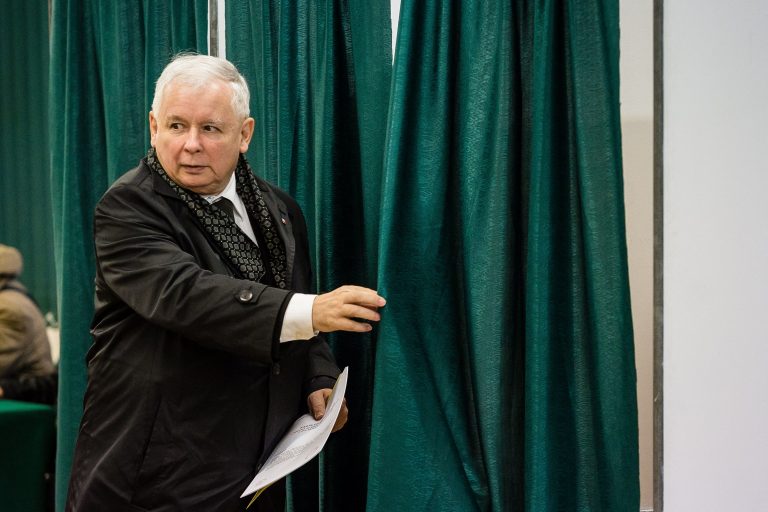The Polish government is at loggerheads with the European Union over jurisdictional rights leading to a looming walkout of Warsaw and possibly financial sanctions imposed by the supra-national governing body.
Tension reached a tentative climax after the Polish Constitutional Tribunal ruled that the process of legal integration as encoded in EU treaty law had reached a ”new stage” and was irreconcilable with Polish National Law.
“The bodies of the European Union act outside the powers conferred on them by the Republic of Poland,” said the ruling and continued that in case it is allowed to stand, “Poland cannot function as a sovereign and democratic state.”
As soon as the news broke, many European Rule abiding proponents of the Union like France, Germany, Ireland and the Netherlands denounced the act of Polish nationalist boldness and called for heavy financial punishment of renegade Warsaw, in case it would not live up to its agreements, or even to leave the union, causing a Polexit.
While speaking to a gathering of pro-EU demonstrators in Warsaw on Sunday, Oct. 10, Donald Tusk, former head of the European Council and now leader of Civic Platform, said that a “pseudo court, a group of people dressed in judge’s gowns and on the order of the party’s leader, in violation of the Polish constitution, decided to lead our homeland out of the EU.”
Success
You are now signed up for our newsletter
Success
Check your email to complete sign up
“After all, we know very well why they want to leave the European Union,” Tusk added. “In fact in order to violate citizens’ rights with impunity, to violate democratic principles and to steal without restraint,” Tusk said, as per AP.
Meanwhile, the Polish government vehemently denied the country is considering to opt-out of the Union, but, at the same time, demarcates the boundaries of its own judicial territory.
“All obligations arising from both primary and secondary European Union law remain in force and thus, will be continue to be fully respected by Poland,” it said in a statement.
“The provisions of the Treaty of the European Union indicated in the judgment …remain in force. What cannot be accepted are only the forms of their interpretation or application that violate the constitution.”
Even more so, Prime Minister Mateusz Morawiecki dismissed the spreading of rumors that the Poles are planning to desert the bloc as hearsay, and fake news.
“Our dear opposition are trying to insinuate that we want to weaken the union by leaving the EU,” Morawiecki said during a summit of the four central European “Visegrad” nations in the Hungarian capital Budapest on Tuesday.
“This is obviously not just fake news, it is something worse – it is a lie that aims to weaken the Union.”
Relations between Poland and the EU started to show cracks when, in 2015, Morawiecki and his conservative, patriotic Law and Justice Party, or PiS, won the presidential and parliamentary elections.
Soon after his installation, the new President Andrzej Duda started assigning several constitutional judges that would rule more in line with the party’s principles, much to the outrage of several EU hardliners and the European Court of Human Rights, that deemed it a breach of Polish legal codes.
According the BBC, European Commission President Ursula von der Leyen said that “our utmost priority is to ensure the rights of Polish citizens are protected and that Polish citizens enjoy the benefits granted by the membership of the European Union.”
But PiS justified the decision, claiming it would contribute to the judges’ accountability; meanwhile the appointments were a means of purging corrupted incumbent elements from the communist era (1945–1989).
Looming financial penalties ordained by Brussels will hit exactly the Achilles’ heel of the Poles as the country’s economy leans heavily on tens of billions of dollars in European grants, and subsidies it receives annually.
Meanwhile, Morawiecki has new problems rising at the eastern horizon, where he faces an enormous influx of immigrants coming from neighboring Belarus. An incident on Sept. 2 caused the government to proclaim a state of emergency along its along its 260-mile (418-kilometer) border region.
Mass immigration has been a structural problem for some years now for Morawiecki and his Party, who accuses Belarusian President Alexander Lukashenko of Belarus of destabilizing eastern European borders and Polish society by swaying the immigration flood gates fully open in an attempt to push back on European sanctions imposed on Minsk.













